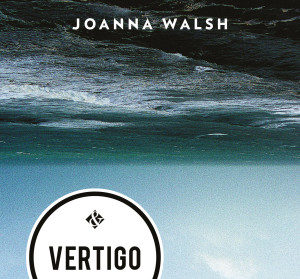Joanna Walsh’s short story collection Vertigo celebrates being over doing. The collection explores different states of being; how our thoughts inspire how we carve spaces for ourselves in a variety of social situations.
Vertigo is both sparse and dense; imagine the literary equivalent of Yorkshire moors. Fourteen stories over 123 pages interrogate the aftermath of difficult or unhinging experiences as opposed to dramatic situations themselves, providing readers with the ability to peer through gaps of so-called ‘normality’ of the everyday situation, the aftermath of the fire rather than the blaze itself.
Occasionally, the tendency to explore the abstract over action felt a little frustrating and left me craving specificity. For example, Young Mothers sees a story not set in a specific moment or situation, but in the stream of consciousness of a narrator musing on the challenges, expectations and how it feels to assemble the different identities of a mother; a person, a woman, a mother, a friend, a lover: ‘Sometimes we left ourselves alone to toughen up a little, but always with a watchful eye. Truly we were well cared for.’ The language of this story is as much poetry as fiction, more lyrical than having a strong narrative drive. The narrative voice of ‘we’ rather than the singular augments the abstract and its implicit distance; empathy is difficult when presented with the narrative voice of ‘we’.
Half the World Over sees a masterful depiction of how a character assimilates (or attempts to) into a place in which they are foreign; a visitor in Paris muses on their views, sights. The latter part of the story sees the action taking place in a café opposite Notre Dame: ‘I eat my bread, put Paris into my mouth endlessly.’ These echoes of the ritual of communion hint at one of the collection’s wider themes: characters trying to construct their own codes to make sense of the world in order to assimilate. Food is one of my favourite themes of Vertigo. There is food as social ritual and food as comfort / necessity: ‘If I eat dinner now, I won’t have to eat it later. But I might. I must stop eating. But will I ever dare eat enough to want to stop?’ (Claustrophobia) The social ritual of food and the expectations around how we eat, how much we eat and who we eat with is wonderfully subverted throughout the collection.
A trope favoured by Walsh is a tendency to repeat words and phrases multiple times over short spaces on the page. The effect is unsettling, requiring a few reads before sense becomes apparent due to the disjointed rhythm of the prose: ‘which is an absence, or rather an absence of the absence that is hunger: so that I don’t feel the absence.’ (Vertigo) and ‘From the outside, the man is greater than the woman, who is greater than the child. The child is brighter than the woman, who is brighter than the man.’ (Vertigo) These are challenging to read, but I am still thinking about them. Perhaps that’s the point.
For me the standout story of the collection is The Children’s Ward. The opening line is memorable, and sets the exemplary tone of the rest of the story: ‘I have had some good times in this body, like right now, looking out of the window.’ This story brings together a strong narrative with a stream-of-consciousness, enabling us to see Walsh’s writing at its most effective; moving, unsettling and strange.
Vertigo is a solid, intriguing collection of stories that are bizarre and dense. I occasionally craved a little more lightness, but ultimately felt rewarded to have encountered a group of characters whose thoughtfulness and anxieties were presented with conscientiousness and plenty of memorable soundbites.












